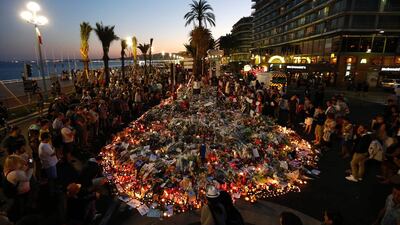As the world is starting to digest the horrific terror attack that claimed the lives of 84 people in the French Riviera city of Nice, questions of blame and revenge are on everyone’s mind. The attacker, Mohamed Lahouaiej Bouhlel, claimed allegiance to ISIL and the militant group has said that it inspired the lorry attack, but evidence has emerged that suggests the attacker was far from a pious man hell bent on religious war.
The details of the attacker’s recent shift to ISIL’s ideology have not stopped French president Francois Hollande from declaring that his country is at war with terror and driving home the rhetoric that France is engaged in a clash of civilisations.
It has been nearly 15 years since the United States began a global war on terror. The world has watched as Iraq was essentially dismembered after the US-led invasion to overthrow Saddam Hussein. Afghanistan still teeters on the brink of chaos and in the aftermath of the Arab revolutions of 2011, Syria and Libya have fallen into complete disarray. Extremist movements have directly benefited from this disorder. Far from making the international community safe from terror, the war on terror has given rise to extremist movements across the globe and compounded challenges.
Instead of rushing to open another front in the war on terror, France must look inward at the health of French society. The Nice attacker emerged out of a fractured France grappling with its national cohesion. While the country’s valued liberalism remains firmly in place, many groups find themselves on the outside. With few avenues for sound employment and pushed to the edges of society, some members of these minority groups, such as Mohamed Lahouaiej Bouhlel, become attracted to ISIL’s apologetic ideology.
The war on terror is a serious conflict that requires resources and time. Groups such as ISIL will continue to inspire attackers and sow terror everywhere they can. We need to be unified against these threats. In this specific context, we need investigation and inquiry into how social dynamics can push individuals to extremism.
In France and in the United States, we have seen the rise of lone- wolf attackers driven by their alienation in society and inspired by ISIL’s twisted propaganda. To stop these attackers before they become radicalised will require self-reflection and debate about each country’s national identity. It will be a slow process but one that is unavoidable.

